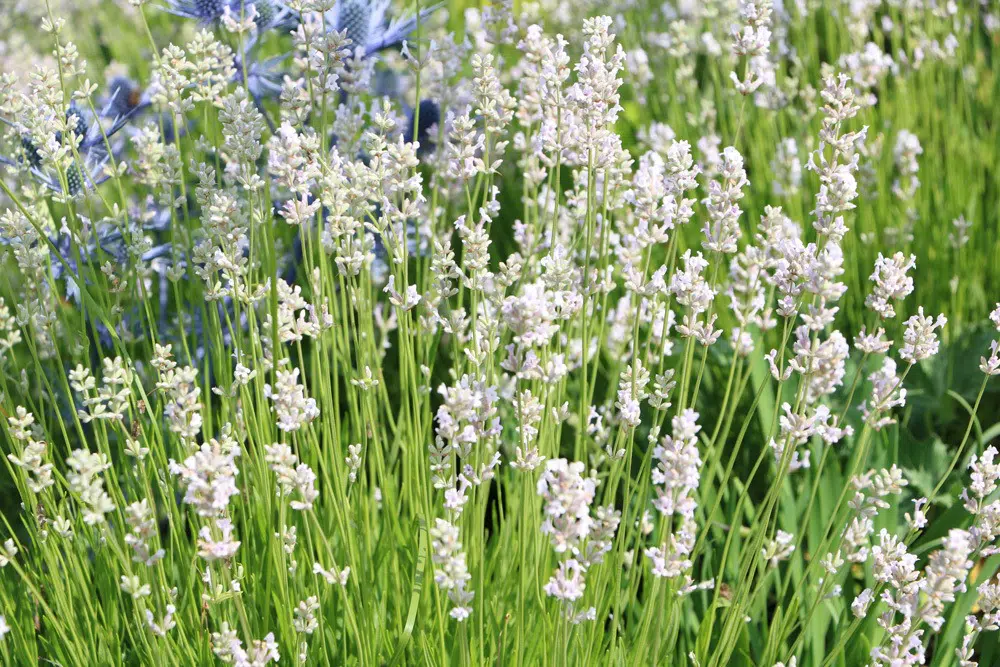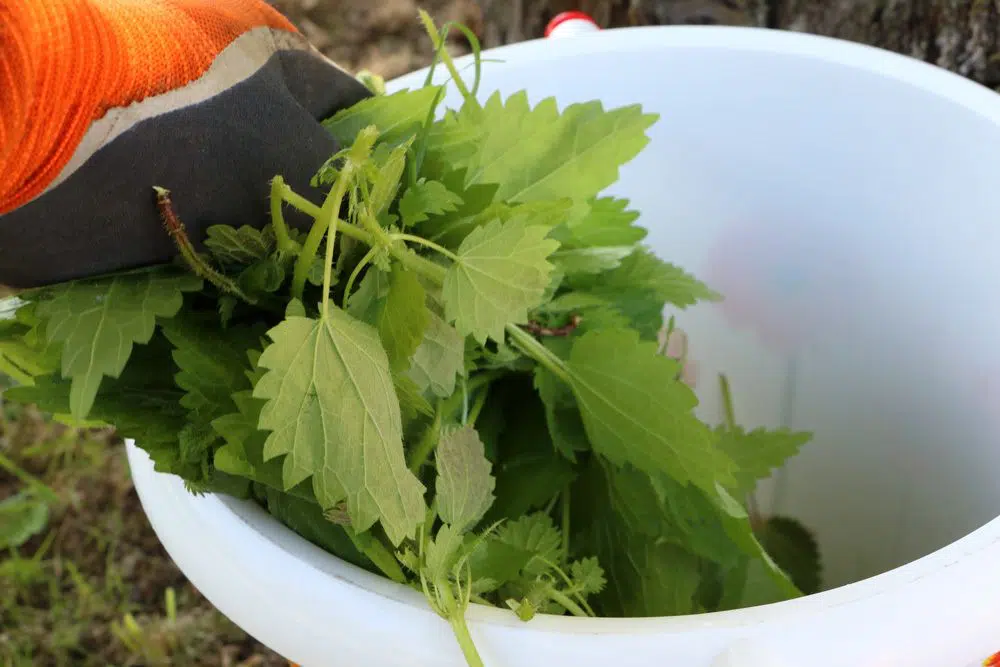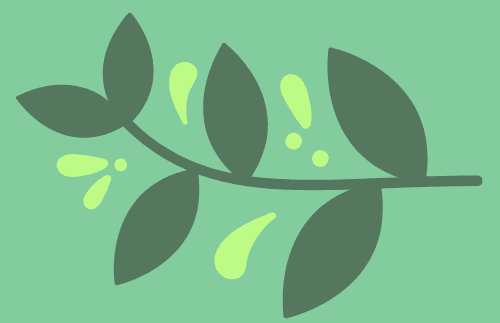Last updated on October 23rd, 2023 at 08:33 pm
Aphids are widespread pests and like to settle in the herbaceous bed. Since aphids prefer especially the delicate leaves and young shoots of herbs, the voracious insects can cause great damage. In extreme cases, it can even lead to the complete death of the infested plants. Therefore, appropriate control measures must be taken promptly. Since herbs are edible crops, natural home remedies are to be preferred over chemical treatment methods.
Contents
Establish natural predators
With natural predators can quickly and easily get rid of aphids. If the beneficial insects feel at home in the herb bed and settle permanently, they prove to be very efficient in combating and can eat a large number of the aphids every day. In this way, the gardener can relax and the necessary countermeasures will take care of themselves.
- The predators include larvae of ladybugs
- larvae of lacewings and gall midges also include
- earwigs and parasitic wasps also eat aphids
- Encourage settlement through nesting boxes and insect hotels
Note: The nesting and living places for natural predators can be obtained in specialized stores, but the equipment can also be constructed on your own.
Plant deterrent herbs
Aphids may appear extremely voracious, but the pests are picky about their diet and by no means like all herbs. Therefore, planting certain varieties in the herb bed is a good idea, as often their scent alone will drive away the aphids. Garlic cloves have proven helpful, which are first cut and then inserted vertically into the bed with the cut point facing upwards.

- Aphids avoid lavender and sage
- Do not like savory and thyme
- Find very strong odors annoying
- Plant garlic and onions in the herb bed
- Make your own liquid manure
As an effective home remedy against the pests has proven itself liquid manure from various plants. For many centuries, various herbs have been used to combat pests in the local garden beds.
Field horsetail liquid manure
Field horsetail not only has a deterrent effect on insects, but also as a preventive measure sustainably strengthens the immune system of herbs. Thus, even sensitive plants can better protect themselves against infestation with aphids.
- Use about 1 kg of fresh field horsetail.
- Alternatively use 200 g of dried leaves
- Soak herb in 2 liters of cold water for 1-2 days
- Afterwards put liquid manure in spray bottle
- Spray infested herbs several times a day
- Repeat preventive measure every week
Decoction from nettles

Nettles are also known for a long time as a harmless home remedy for combating aphids. The decoction should be allowed to infuse well after preparation, but the mixture should not ferment. Since the fermentation process starts quickly, especially during warm summer days, it is better to store the broth in the refrigerator during this season. Otherwise, the broth develops an unappetizing stench, which, however, can be mitigated with rock flour if necessary. Already fermenting decoction can be used as fertilizer for herbs, as it strengthens the immune system of plants against infestation with aphids.
- Use 200 g of fresh nettles
- As an alternative take 20 g of dried leaves
- Roughly chop the plant parts
- Soak in 1 liter of water for 2 days
- Strain well afterwards
- Put undiluted broth into spray bottle
- Spray infested herbs, repeat more often
Broth from garlic
Garlic has proven to be particularly effective in controlling aphids. Not only planting the spice plant deters aphids in the herb patch, but in addition, an effective decoction can be made from it. The extremely strong odor and essential oils of garlic are the main help against pest infestation. The garlic decoction is also effective against other voracious insects, such as maggots, mites, caterpillars and snails. Furthermore, the decoction has proven beneficial and curative in harmful fungal diseases.
- Finely chop 50 g of fresh garlic
- Pour over 1.5 liters of boiling hot water
- Leave to infuse for 3-4 hours
- Strain through a tea towel
- Pour cold broth into spray bottle
- Spray infested herbs often with undiluted broth
- Repeat weekly as a preventive measure
Note: Broth, slurry and decoction from plants are often only helpful in the early stages of an infestation. When aphids are multiplying explosively, much stronger antidotes are needed.
Neem oil
Neem oil originated in Asian Ayurveda and is used there for many purposes. The multifaceted oil is available in health food stores, drugstores and health food stores. It should be noted that neem oil has a strong mode of action and an intense odor, so the agent should never be used undiluted. Otherwise, the herbs may be damaged and burned. Since neem oil is extremely potent, aphids are weakened and listless after only a few hours following the first application. After further applications, the aphids can be completely gotten rid of in the herb bed.
- Mixture of 1 teaspoon of neem oil with 1 liter of water.
- Pour into spray bottle, shake vigorously
- Spray affected plant parts with it every day
- In case of heavy infestation use several times a day
- As a preventive measure, apply every week
Curd or soft soap
Both curd soap and soft soap have become established in the fight against aphids. Since these natural soaps do not contain excess fat, there is no greasy layer on the sensitive herbs after use. Neither fragrances nor dyes are used in the production of soap products, as well as no artificial thickeners. Liquid soaps and scented soaps are not suitable as antidotes, because they contain perfume and chemical ingredients. Otherwise, this will cause a deterioration in the aromatic taste of herbs.
- Biological curd and soft soap is optimal
- Separate about 50 g from the soap
- Grate or finely grind the soap bar
- Then dissolve in 1 liter of warm water
- Cool and pour soap solution into spray bottle
- Spray only affected herbs
- Soap should not drip on soil
- Wash off soap solution well before consumption
Tip: If you have a particularly heavy infestation of aphids, the effectiveness of the soap solution can be intensified with high-proof alcohol from the drugstore.
Baking soda
Sodium bicarbonate is a universal household remedy that is also suitable for getting rid of aphids in the herb bed. Since the antidote is completely without danger for both human health and the environment, stronger dosages can also be used. With the addition of other ingredients, it is also suitable for combating the stubborn scale and mealybugs.
- Add at least 1 teaspoon of baking soda to 1 liter of water.
- Shake vigorously to dissolve agent well
- In case of heavy infestation, supplement with neem oil
- Alternatively add alcohol or soap solution
- Spray infested herbs for several days


